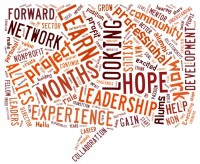Apr
5
2013

Written by guest blogger
MacArthur Antigua is Director of Alumni Engagement for Public Allies, where he has overseen both the growth of their national network to 21 cities and the highest numbers of applicants in their history. Below he talks about his newest project as one example of how to tap leadership through alumni networks.
Over the last 20 years, more than 4,400 diverse young leaders have completed the acclaimed Public Allies AmeriCorps Apprenticeship and comprise our National Alumni Network. On our most recent national Alumni survey, we discovered that nearly 80% still work in the public and social sectors, and nearly 25% of them aspired to the Executive Director/CEO positions. To address this opportunity, with the generous support of the Annie E. Casey Foundation, Public Allies has initiated The Pipeline Project, an effort to develop our national alumni network as a strong, diverse and reliable talent pipeline for public and social sector organizations in order to positively impact the lives of children and families in local communities.
The Pipeline Project consists of two main groups: the “Champions” – these are alumni that have attained ED/CEO or Senior Management positions in public/social sector organizations, and the “Next Wavers” these are alumni who aspire to occupy the “c-suite.” We are using the professional networking site LinkedIn as our platform for these Alumni to connect and participate in a myriad of engagement activities: asynchronous discussion topics (“Ask A Champion!” or “Share your 6 month goals”) to real-time (conference calls that utilize “virtual breakout room” technology so participants can connect in dyads or triads); virtual (webinars and google hangouts) to in-person (“Coffee with a Champion”).
In developing this initiative, I came across the Vision for Change report and found it to be profoundly relevant to our cohort and invited Caroline McAndrews to explore how we could leverage this report to accelerate our project. As a result, we were able to create a “self-assessment tool” (available to BMP readers in the coming months) based on the framework of the report which invited our participants to gauge their own leadership practice. We were also able to introduce this tool and discuss the report on a webinar with our cohort (which also served as the project launch). We featured a brief panel with a Champion and a Next Waver in which each shared her own path as a “case study” in relation to the Vision for Change report.
Over the course of the next 10 months, through this learning community we will increase the social capital of 150 Alumni – this means to increase their professional network, and/or assist them in identifying mentors, increase their awareness of career development resources – and move 30 of our Alumni into positions of greater influence and scope at public and social sector organizations benefiting children and families. The Vision for Change report (and the resulting Assessment and Webinar) provided a terrific platform for our Pipeliners to consider “what it takes” to get to the executive level, and begin mapping out how they can personally leverage this learning community to get there.
